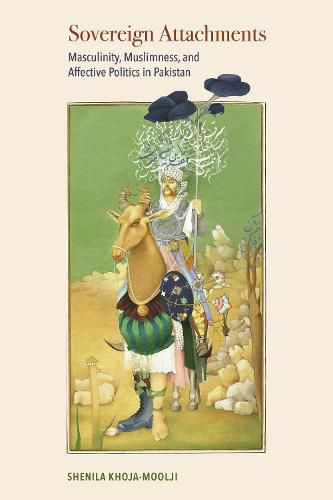Readings Newsletter
Become a Readings Member to make your shopping experience even easier.
Sign in or sign up for free!
You’re not far away from qualifying for FREE standard shipping within Australia
You’ve qualified for FREE standard shipping within Australia
The cart is loading…






Sovereign Attachments rethinks sovereignty by moving it out of the exclusive domain of geopolitics and legality and into cultural, religious, and gender studies. Through a close reading of a stunning array of cultural texts produced by the Pakistani state and the Pakistan-based Taliban, Shenila Khoja-Moolji theorizes sovereignty as an ongoing attachment that is negotiated in public culture. Both the state and the Taliban recruit publics into relationships of trust, protection, and fraternity by summoning models of Islamic masculinity, mobilizing kinship metaphors, and marshalling affect. In particular, masculinity and Muslimness emerge as salient performances through which sovereign attachments are harnessed. The book shifts the discussion of sovereignty away from questions about absolute dominance to ones about shared repertoires, entanglements, and co-constitution.
$9.00 standard shipping within Australia
FREE standard shipping within Australia for orders over $100.00
Express & International shipping calculated at checkout
Sovereign Attachments rethinks sovereignty by moving it out of the exclusive domain of geopolitics and legality and into cultural, religious, and gender studies. Through a close reading of a stunning array of cultural texts produced by the Pakistani state and the Pakistan-based Taliban, Shenila Khoja-Moolji theorizes sovereignty as an ongoing attachment that is negotiated in public culture. Both the state and the Taliban recruit publics into relationships of trust, protection, and fraternity by summoning models of Islamic masculinity, mobilizing kinship metaphors, and marshalling affect. In particular, masculinity and Muslimness emerge as salient performances through which sovereign attachments are harnessed. The book shifts the discussion of sovereignty away from questions about absolute dominance to ones about shared repertoires, entanglements, and co-constitution.